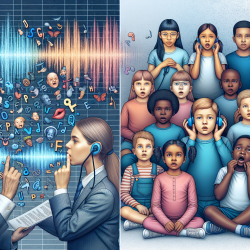The COVID-19 pandemic has been a catalyst for change in many areas of life, including mental health support. The research article "Medicine for the soul: (Non)religious identity, coping, and mental health during the COVID-19 pandemic" provides valuable insights into how different coping strategies affect mental health outcomes. This blog explores how practitioners can integrate these findings into their practice to enhance their skills and improve client outcomes.
Understanding the Research
The study examined the relationship between religiosity, stressor appraisals, coping strategies, and mental health among a diverse Canadian sample. It found that individuals with higher religiosity often reported better mental health outcomes. This was attributed to their tendency to view challenges as opportunities for growth and to engage in both religious and non-religious coping strategies.
Key Findings
- Religious individuals were more likely to appraise stressful situations as challenges rather than threats.
- Coping strategies such as problem-focused and emotional-engagement were linked to better mental health outcomes.
- Religious coping was associated with positive mental health, but non-religious strategies also played a significant role.
Applying Research Outcomes in Practice
Practitioners can leverage these findings by encouraging clients to integrate both religious and non-religious coping methods into their daily routines. Here are some practical steps:
Encourage Diverse Coping Strategies
- Problem-Focused Coping: Encourage clients to engage in active problem-solving and cognitive restructuring. These strategies help clients feel more in control of their circumstances.
- Emotional-Engagement: Promote healthy emotional expression and social support-seeking behaviors while cautioning against rumination and other negative emotional responses.
Integrate Religious Practices When Appropriate
If a client identifies with a religious group, incorporating religious practices such as prayer or meditation can be beneficial. These practices can provide a sense of community and purpose, which are crucial during times of stress.
Culturally-Sensitive Approaches
It's important for practitioners to be culturally sensitive when recommending coping strategies. Understanding the client's background and beliefs can help tailor interventions that are respectful and effective.
Encouraging Further Research
This study highlights the importance of ongoing research into the interplay between religious beliefs and mental health. Practitioners should stay informed about new findings through conferences, publications, and webinars. Engaging in continuous learning will ensure that they provide the most current and effective support to their clients.
Conclusion
The integration of religious and non-religious coping strategies offers a comprehensive approach to improving mental health outcomes during crises like the COVID-19 pandemic. By applying these research findings, practitioners can enhance their skills and provide more effective support to their clients.
To read the original research paper, please follow this link: Medicine for the soul: (Non)religious identity, coping, and mental health during the COVID-19 pandemic.










